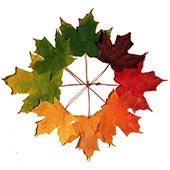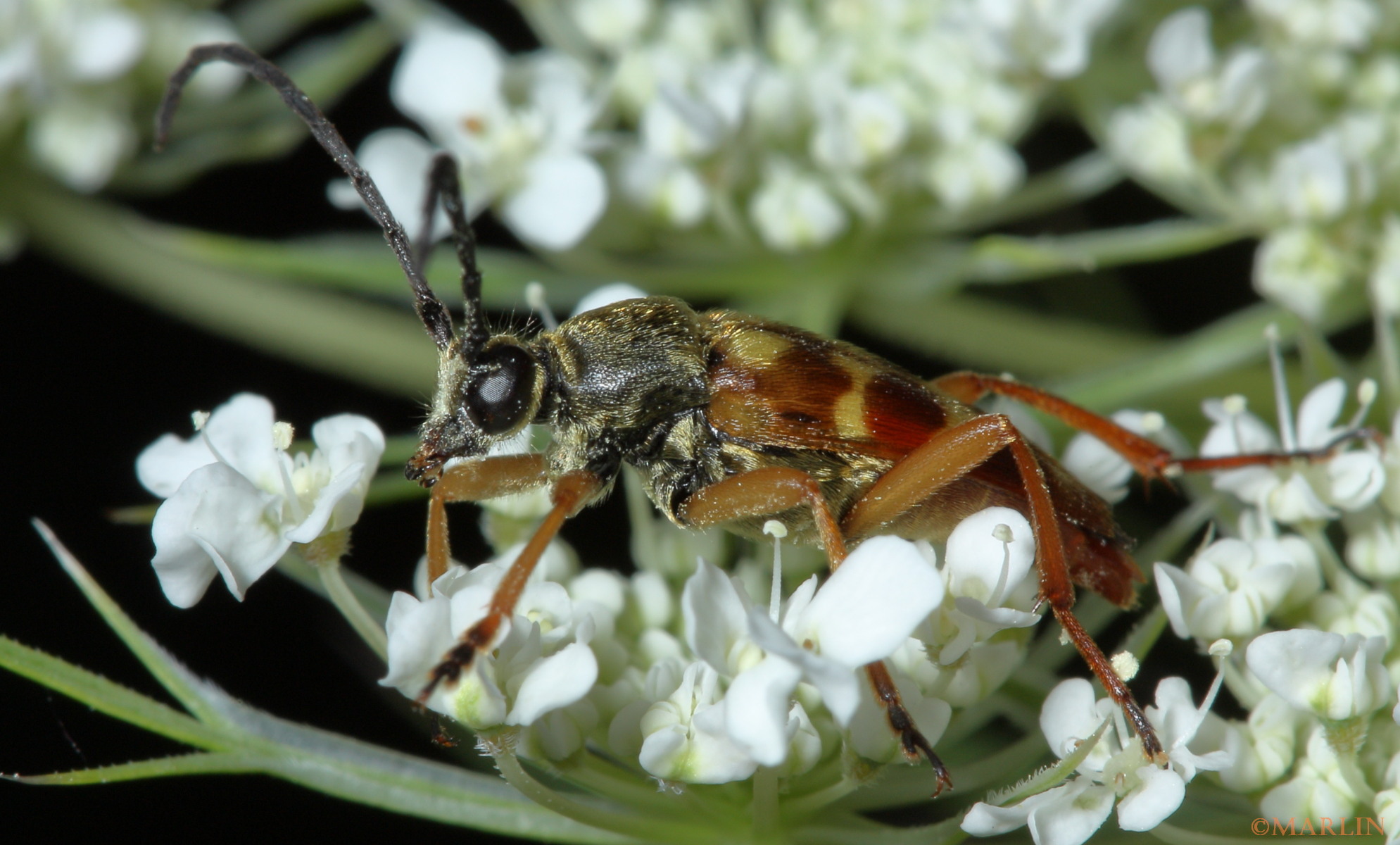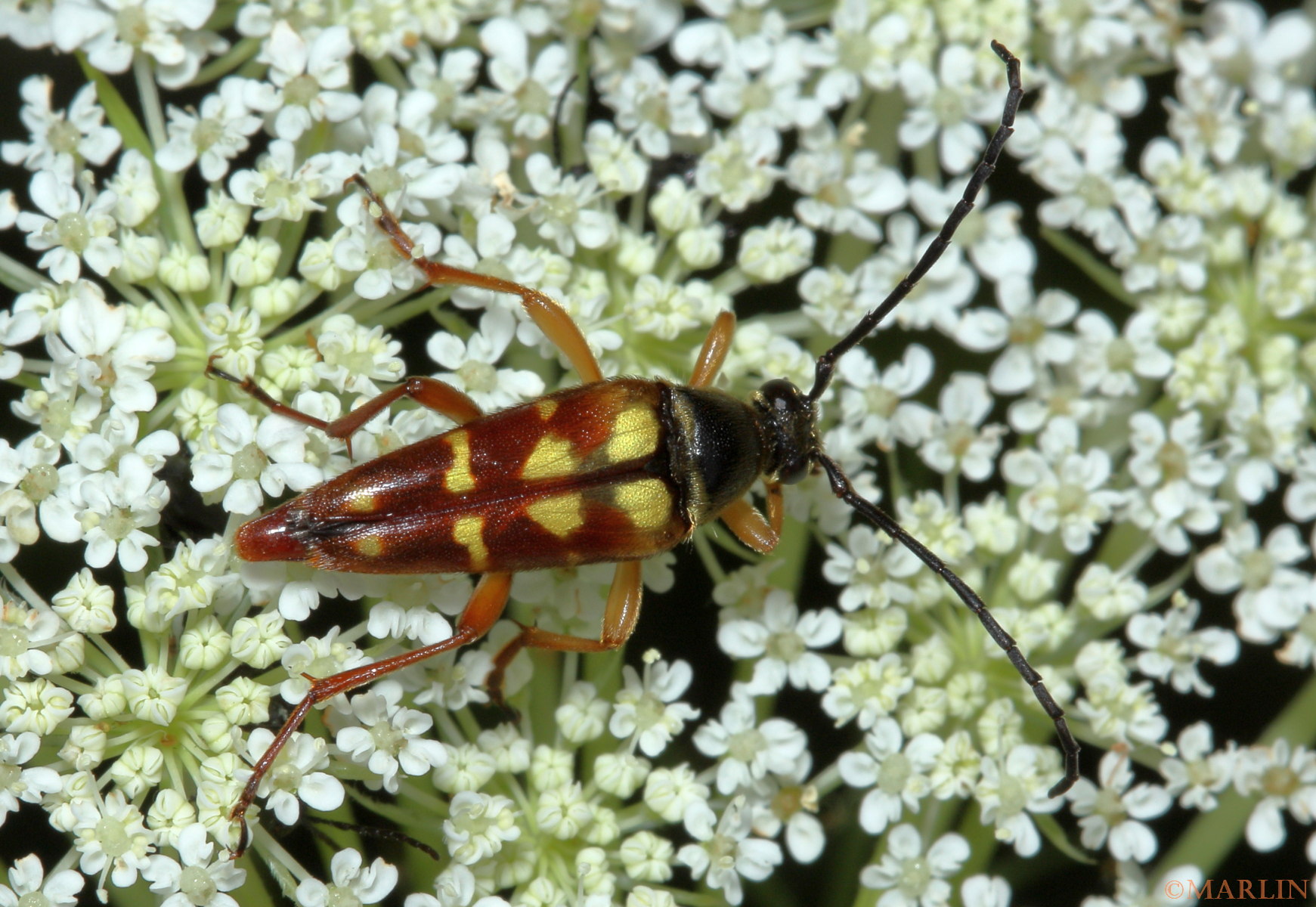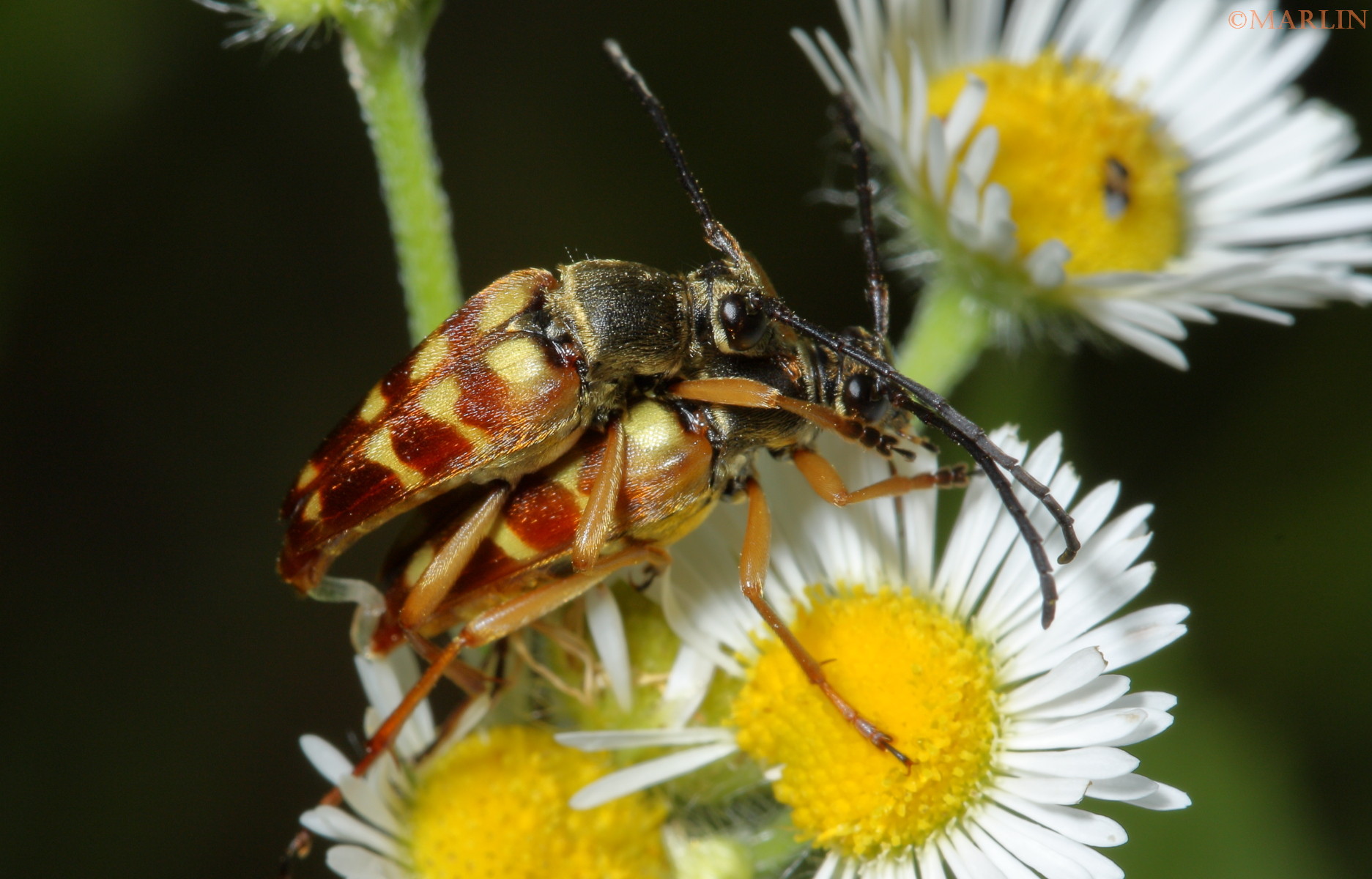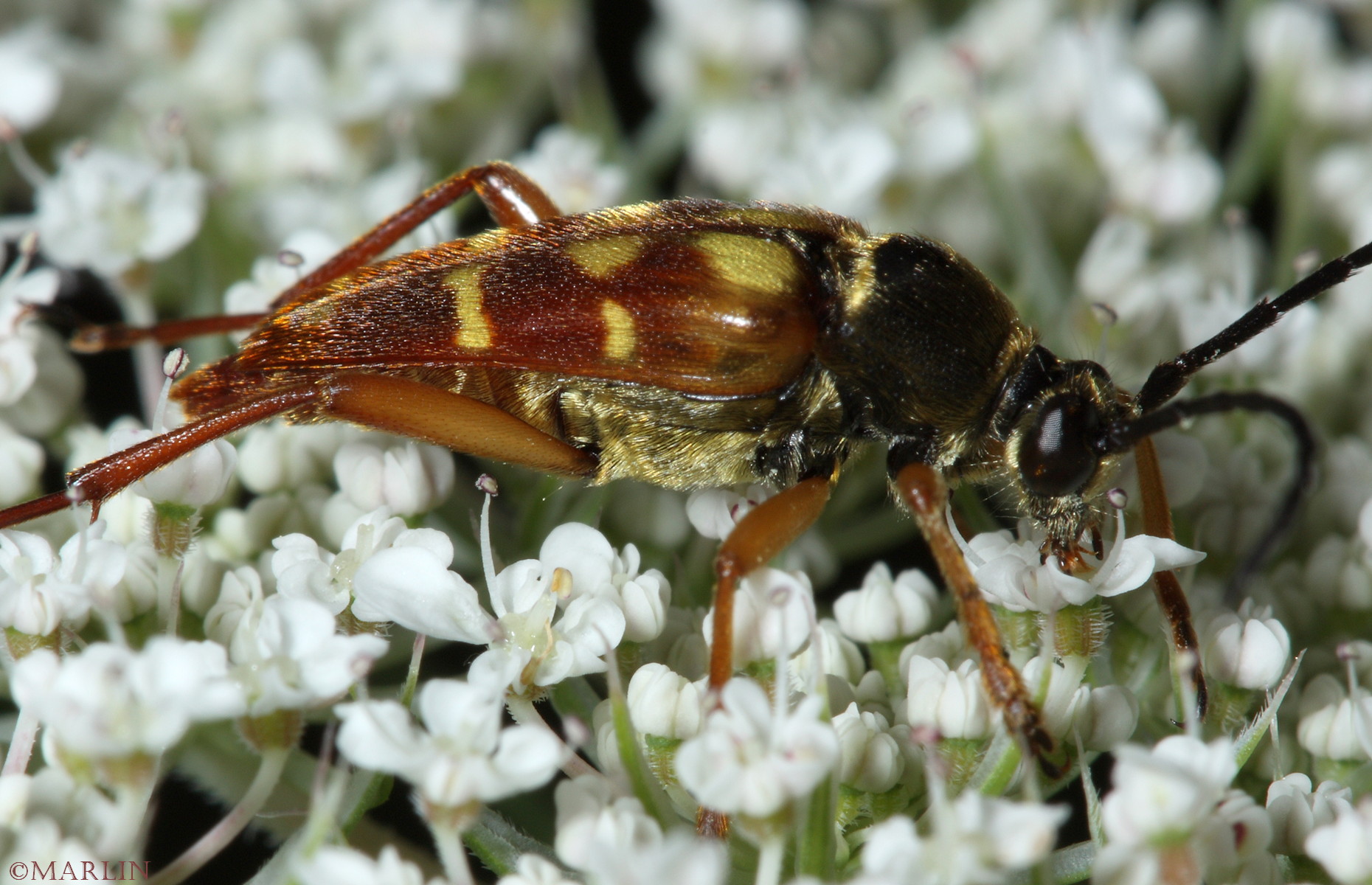Flower Longhorn Beetle – Typocerus velutinus
Family Cerambycidae – Longhorn Beetles / Subfamily Lepturinae – Flower Longhorns
Live adult beetles photographed in the wild at DuPage County, Illinois. Size: 15mm
Species epithet Latin velutinus, “downy”. Also commonly called banded longhorn [1]. Adults are voracious consumers of pollen and nectar. Larvae feed on decaying hardwoods. Range: Eastern United States.
30mm long with antennae, this beetle is on the small side for a member of a subfamily commonly called flower longhorns, after their habitat and principle food source. Lepturinae is a large assemblage of beetles with about 360 species in 80 genera in the New World. Adult beetles eat pollen, and this beetle is fairly well dusted with it. Beetles have been pollinating plants for much longer than any other insect.
The comparatively narrow pronotum and tapered elytra give this subfamily its characteristic broad-shouldered look. The eyes are much larger and more bulbous, and they do not wrap around the antenna base like many other longhorn, i.e. the red milkweed beetle [2].
With over 20,000 species described, Cerambycidae is a large family. Many are serious pests, with the larvae boring into wood, where they can cause extensive damage to either living trees or untreated lumber, and adult beetles feed on various plants, sometimes causing grave harm. A number of species mimic ants, bees, or wasps (see Locust Borer).
References
- Bugguide.net, Typocerus velutinus
- Wikipedia contributors, “Magnolia” retrieved April 19, 2012
- www.efloas.org, Flora of China, “Magnoliaceae“
- Anders L. Damgaard, File:Baltic amber Coleoptera Scraptiidae.JPG under Creative Commons 3.0 unported
Beetles Main | Beetles Index | Longhorns | Leaf Beetles | Soldier | Blister | Lady | Scarab